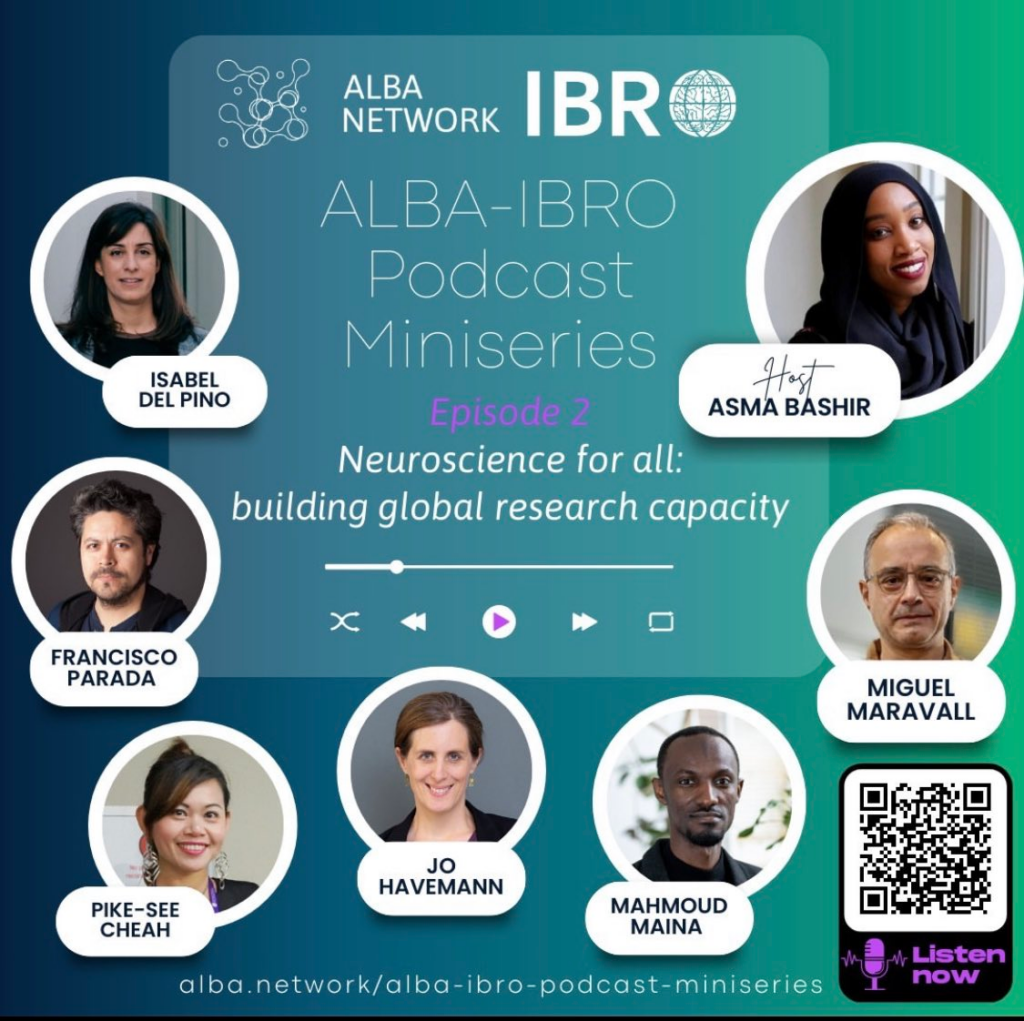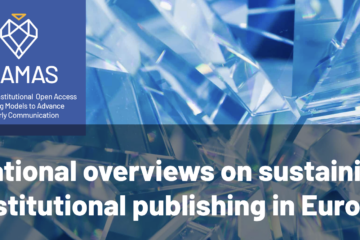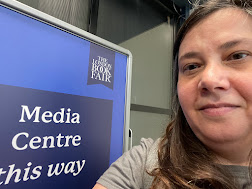Neuroscience for all: building global research capacity
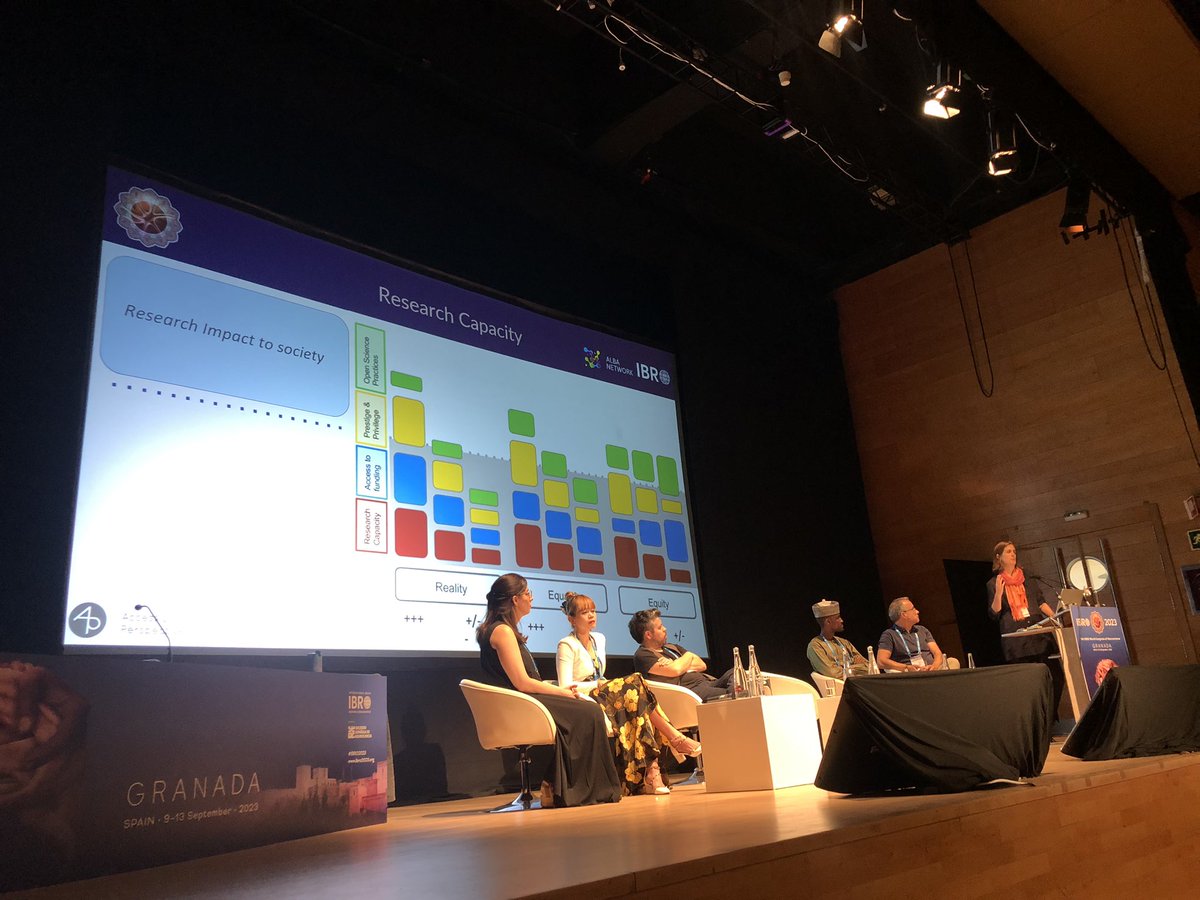
As part of the IBRO World Congress 2023 (9-13 September – Granada, Spain), the ALBA Network and the IBRO Early Career Committee partnered to facilitate a wide-ranging discussion of what neuroscientists can do as a community to build research capacity in the Global South, and how this increase in local capacities for research and innovation can, in the broader picture, bring benefits to us all.
The presentations and discussion included issues such as:
- avoiding brain drain in the Global South by ensuring capacity is built onsite;
- expanding social access to technologies generated through neuroscience research;
- getting feedback from stakeholders and ensuring programmes are properly assessed; and
- celebrating, while also reviewing and learning from, what IBRO has done in the past.
As one of the panelists who shared their experiences and success stories in diverse settings across the globe, Jo Havemann presented a global perspective on how the adoption of Open Science practices can under-resourced research environments.
If we combine #OpenScience to reallocation of #resources to promote access to high-level research in underfunded regions, we can tip the balance towards equity in sharing scientific advancement and its benefits, which is mentioned in the Declaration of Human Rights –
@openscicomm
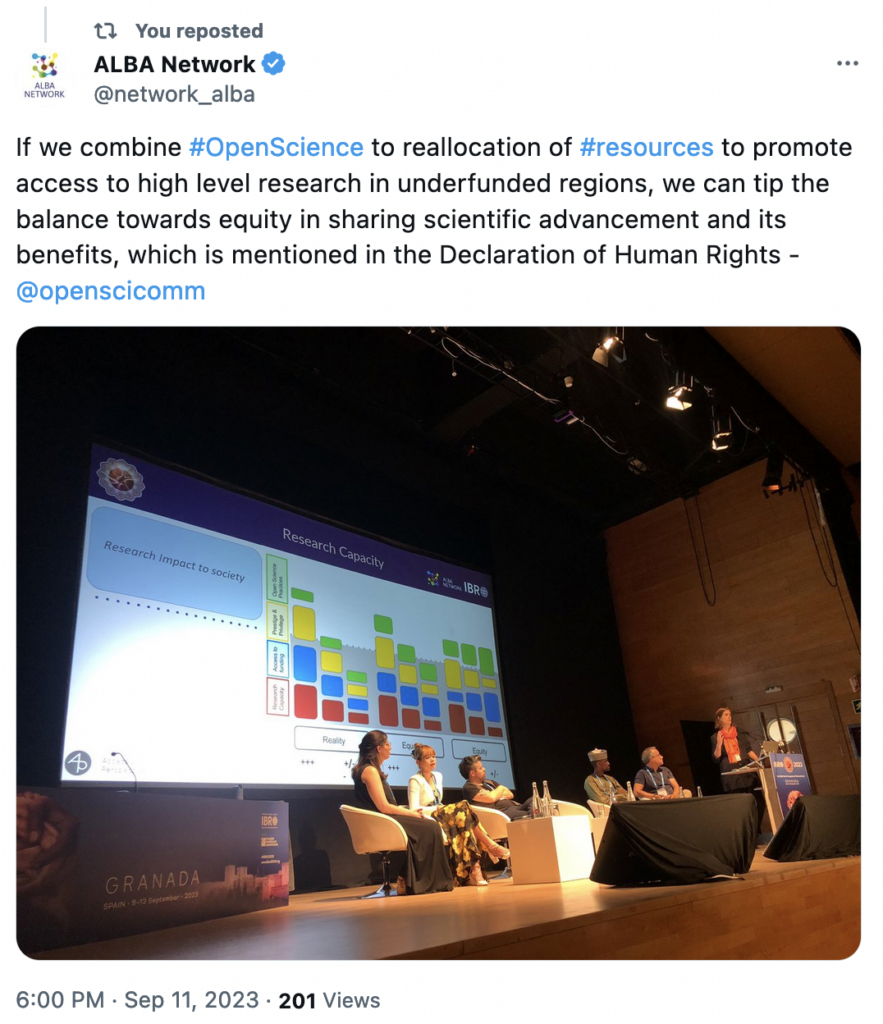
Chairs & Panelists
- Isabel del Pino (Instituto de Neurociencias CSIC-UMH, Spain – Member of the IBRO ECC) – Chair
- Miguel Maravall (University of Sussex, UK – ALBA Board of Directors) – Chair
- Mahmoud Bukar Maina (University of Sussex, UK / Yobe State University, Nigeria – ALBA Ambassador) on « Advancing African Neuroscience on a Global Stage: A Case Study of the Biomedical Science Research and Training Centre in Nigeria. »
- Pike-See Cheah (Universiti Putri Malaysia, Malaysia – ALBA Ambassador & IBRO APRC Chair) on « Global Neuroscience Impact: Funding Opportunities and Partnerships in the Asia Pacific Region. »
- Jo Havemann (CEO of Access 2 Perspectives, Germany) on « The role of research repositories for region specific and globally inclusive community building, accessibility and discoverability. »
- Francisco Parada (Universidad Diego Portales, Chile) on « Breaking Boundaries: Unleashing Neuroscience Innovation in South America from the Santiago School of Cognition. »

The panel topic was also featured in a podcast session hosted by Asma Bashir:
Listen on the ALBA website: alba.network/alba-ibro-podcast-miniseries or any podcast streaming service.
